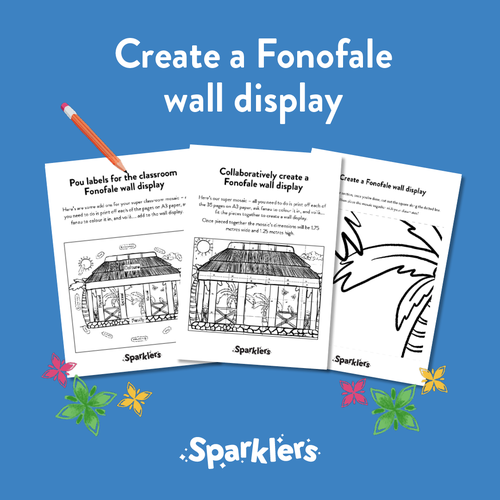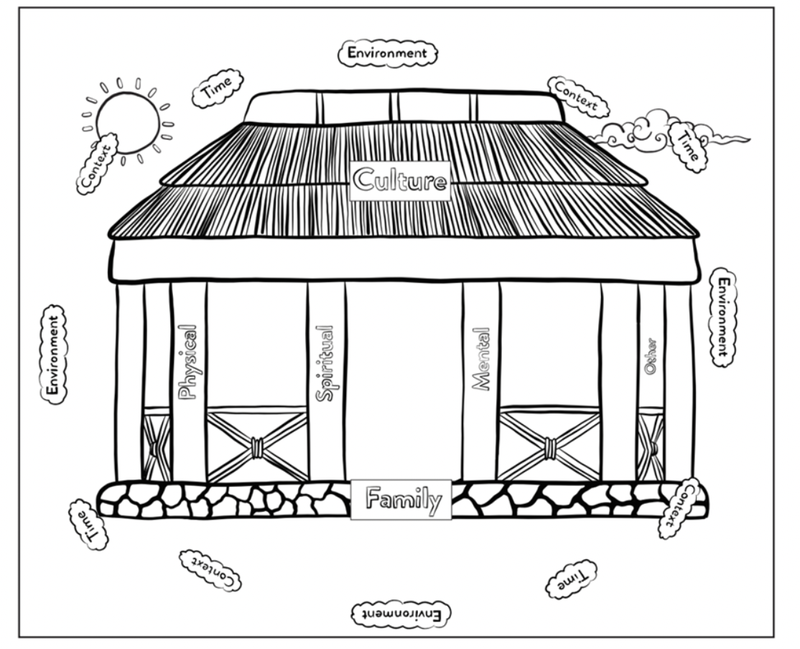Learning outcomes
Tamariki have an understanding of Fonofale model, having collaborated with others to create a classroom wall display.
Tamariki have an understanding of Fonofale model, having collaborated with others to create a classroom wall display.
The Fonofale model was created by Fuimaono Karl Pulotu-Endemann following talanoa (kōrero) with people from a variety of Pacific nations about concepts of wellbeing. We love it because it's all-encompassing of health, and amazingly broad in terms of its far-reaching context. We love too that, like Te Whare Tapa Whā, it places people (in our case fanau (children)) at its centre and highlights the many contributing factors to wellbeing.

This is the full 35 page mosaic your class can colour and put together collaboratively.
Printing on A3 paper gives you a wall display that's 1.75 metres wide and 1.25 metres high.
We've included numbers on each piece to make things easier!
Again, print size A3, colour and add these labels to your mosaic once it's complete.
You might like to use this worksheet to talanoa about the Fonofale model, it's from the activity My Fale.
You may like to talanoa with your fanau as they create their fale, or wait until its fully created before moving onto explaining its parts, concept and use. Using this worksheet from the activity My Fale, may be useful.

The Fonofale model created by Fuimaono Karl Pulotu-Endemann is represented by a fale, and is made up of four main parts.
Fanau may feel familiar with Spiritual, Physical and Mental health as part of Te Whare Tapa Whā, but you may want to talanoa with older fanau about why the fonofale model includes sexuality, gender, age and socio-economic status and how this might impact health and wellbeing.
References:
The Fonofale model was created by Fuimaono Karl Pulotu-Endemann as a Pacific Island model of health for use in the New Zealand context. Our mahi in this space has been informed by Fonofale Model of Health by Fuimaono Karl Pulotu-Endemann As at September 2001 and The Open Polytechnic.
We'd like to acknowledge Tangata Atumotu Trust for its support with this activity.
You might like to talanoa about your classroom community with My Fale or Perform It Up - Island Styles! Another way to extend from your Fonofale is to explore and connect with your tamariki names with What's in a Name?